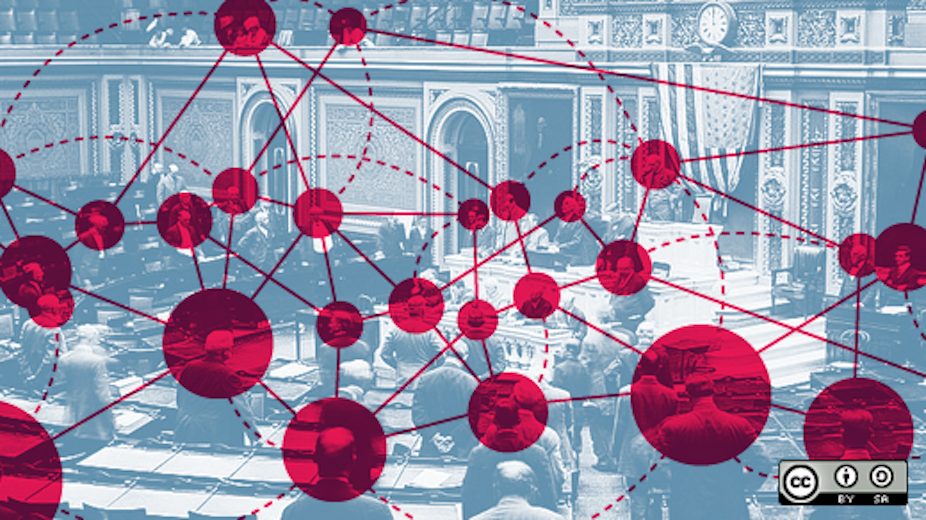Last week G8 leaders signed up to an Open Data Charter, calling for government datasets to be “open data by default”. Open data has risen up the government agenda in the UK over the last three years, with the UK positioning itself as a world leader. But what does the charter mean for G8 nations, and more broadly, will it deliver on the promise of economic impacts and improved governance through the open release of government data relating to matters such as crime figures, energy consumption and election results?
Open government data (OGD) has rapidly developed from being the niche interest of a small community of geeks to a high-profile policy idea. The basic premise of OGD is that when governments publish datasets online, in digital formats that can be easily imported into other software tools, and under legal terms that permit anyone to re-use them (including commercially), those outside government can use that data to develop new ideas, apps and businesses. It also allows citizens to better scrutinise government and hold authorities to account. But for that to happen, the kind of data released, and its quality, matter.
As the Open Knowledge Foundation outlined ahead of the G8 Summit in a release from its Open Data Census “G8 countries still have a long way to go in releasing essential information as open data”. Less than 50% of the core datasets the census lists for G8 members are fully available as open data. And because open data is one of the most common commitments made by governments when they join the wider Open Government Partnership (OGP), campaigners want a clear set of standards for what makes a good open data initiative. The G8 Open Data Charter provides an opportunity to elaborate this. In a clear nod towards the OGP, the G8 charter states: “In the spirit of openness we offer this Open Data Charter for consideration by other countries, multinational organisations and initiatives.”
But can the charter really deliver? Russia, the worst scoring G8 member on the Open Data Census, and next chair of the G8, recently withdrew from the OGP, yet signed up to the Charter. Even the UK’s commitment to “open data by default” is undermined by David Cameron’s admission that the register of company beneficial ownership announced as part of G8 pledges on tax transparency will only be accessible to government officials, rather than being the open dataset campaigners had asked for.
The ability of Russia to sign up to the Open Data Charter is down to what Robison and Yu have called the “Ambiguity of Open Government” — the dual role of open data as a tool for transparency and accountability and for economic growth. As Christian Langehenke explains, Russia is interested in the latter, but was uncomfortable with the focus placed on the former in the OGP. The G8 Charter covers both benefits of open data but is relatively vague when it comes to the release of data for improved governance.
However, if delivered, the specific commitments made in the technical annexe to opening national election and budget datasets, and to improving their quality by December 2013, would signal progress for a number of states, Russia included. Elsewhere in the G8 communiqué, states also committed to publishing open data on aid to the International Aid Transparency Initiative standard, representing new commitments from France, Italy and Japan.
The impacts of the charter may also be felt in Germany and in Canada, where open data campaigners have long been pushing for greater progress to release datasets. Canadian campaigner David Eaves highlights in particular how the charter commitment to open specific “high value” datasets goes beyond anything in existing Canadian policy. Although the pressure of next year’s G8 progress report might not provide a significant stick to spur on action, the charter does give campaigners in Canada, Germany other other G8 nations a new lever in pushing for greater publication of data from their governments.
Delivering improved governance and economic growth will not come from the release of data alone. The charter offers some recognition of this, committing states to “work to increase open data literacy” and “encourage innovative uses of our data through the organisation of challenges, prizes or mentoring”. However, it stops short of considering other mechanisms needed to unlock the democratic and governance reform potential of open data. At best it frames data on public services as enabling citizens to “make better informed choices about the services they receive”, encapsulating a notion of citizen as consumer (a framing Jo Bates refers to the as the co-option of open data agendas), rather than committing to build mechanisms for citizens to engage with the policy process, and thus achieve accountability, on the basis of the data that is made available.
The charter marks the continued rise of open data to becoming a key component of modern governance. Yet, the publication of open data alone stops short of the wider institutional reforms needed to deliver modernised and accountable governance. Whether the charter can secure solid open data foundations on which these wider reforms can be built is something only time will tell.

